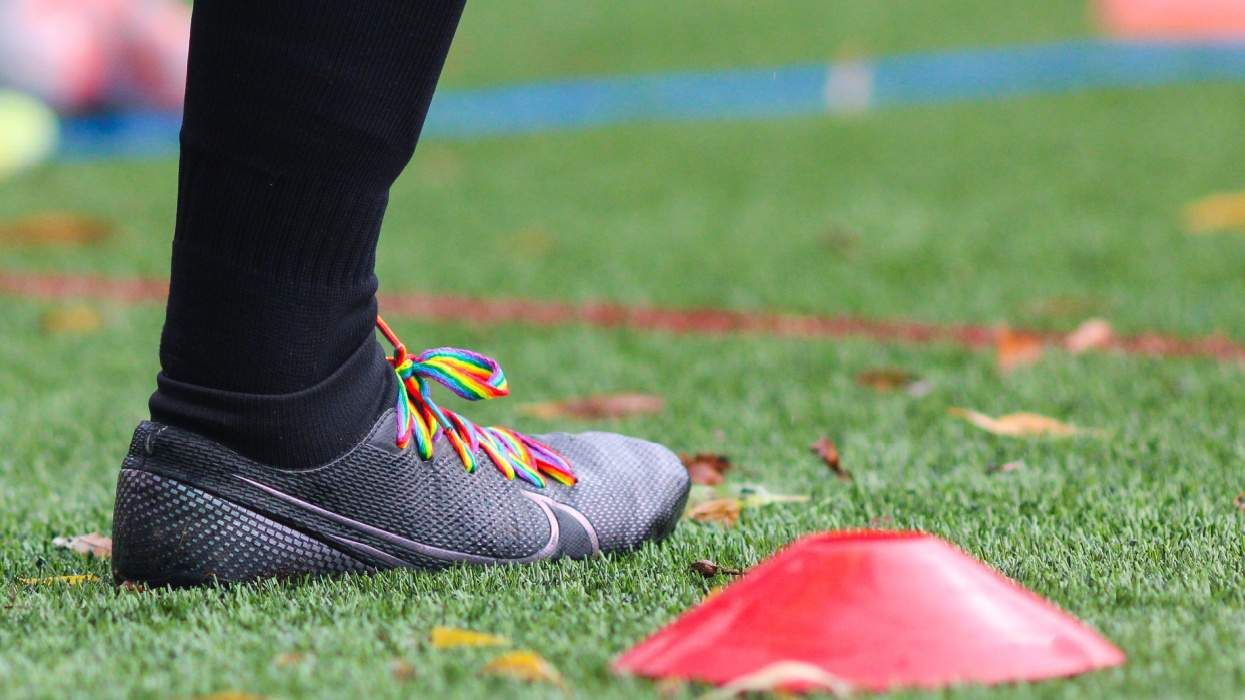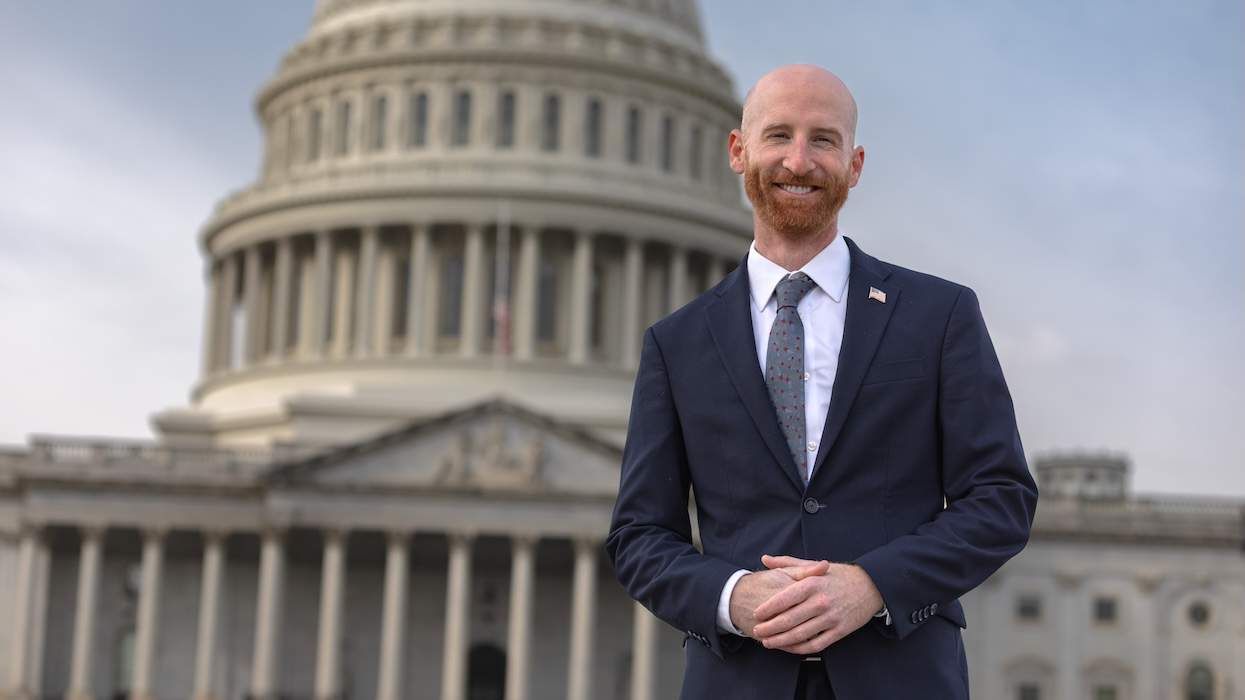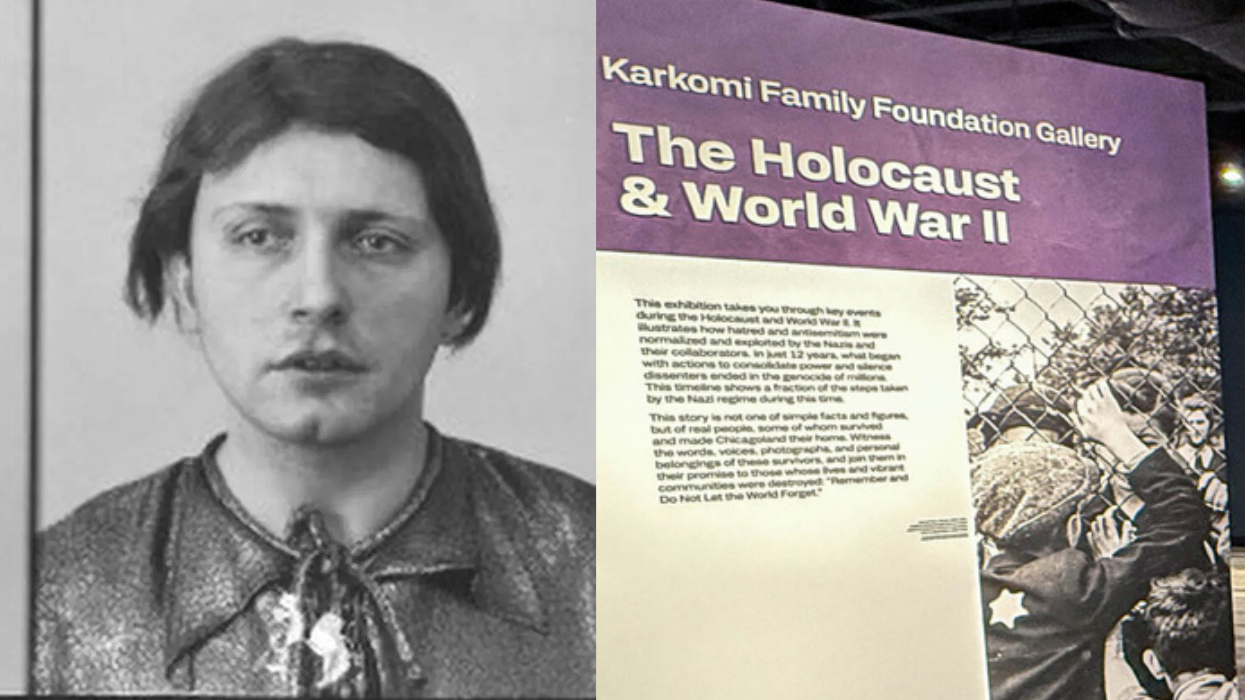July 25 2007 12:00 AM EST
CONTACTAbout UsCAREER OPPORTUNITIESADVERTISE WITH USPRIVACY POLICYPRIVACY PREFERENCESTERMS OF USELEGAL NOTICE
© 2025 Equal Entertainment LLC.
All Rights reserved
All Rights reserved
By continuing to use our site, you agree to our Privacy Policy and Terms of Use.
We need your help
Your support makes The Advocate's original LGBTQ+ reporting possible. Become a member today to help us continue this work.
Your support makes The Advocate's original LGBTQ+ reporting possible. Become a member today to help us continue this work.
HIV-infected babies given antiretroviral drugs in the first weeks of life were four times more likely to survive than those left untreated, raising hopes that more young lives can be saved, new research suggests.
Drugs given to infected infants in South Africa--even though they appeared healthy--helped them live longer than babies who started therapy after showing signs of disease, according to early results of a study sponsored by the U.S. National Institute of Allergy and Infectious Diseases.
World Health Organization guidelines now call for medicines to be administered only after signs of disease or a weakening immune system are observed. But the South African study was so promising that its findings were being released to the WHO and other health officials so they could consider modifying the recommendations.
''It's very good news for young patients and parents,'' coauthor Avy Violari of the University of the Witwatersrand in Johannesburg told the Associated Press on Tuesday. She was to present the findings Wednesday at an International AIDS Society conference in Sydney. ''We were not expecting such short-term benefits,'' she said.
The trial, involving 377 babies between six weeks and 12 weeks old, started in July 2005 in Soweto and Cape Town. Of those given the drugs early despite no sign of illness, 4% died over a 48-week period compared with 16% in the group where treatment was delayed until the babies showed signs of disease.
Last month an independent safety and monitoring board in London concluded the results were so overwhelming that the study should be altered to allow all the infants to begin treatment and that the early findings should be released to the scientific community.
''The results of this trial could have significant public-health implications worldwide,'' Anthony Fauci, a leading AIDS expert and director of the U.S. National Institute of Allergy and Infectious Diseases, said in a statement.
Every year throughout the world about a half million babies are born infected with HIV. Their immune systems are not fully developed within the first year, making them more susceptible to the disease.
No major negative side effects were documented in the trial, but the babies will be followed for three more years to determine whether they experience any, said coauthor Mark Cotton. He said it's important for HIV-positive newborns to be identified early and for policy makers to support treatment. ''We've provided the information, but it has to be implemented into a program that works,'' he said. ''We're quite relieved, in a way, that we have this finding and we have a clear directive of what to do.''
Also at the AIDS conference on Tuesday: Robert Bailey, a professor of epidemiology at the University of Illinois, said studies in Africa showed that uncircumcised men were 2 1/2 times more likely to contract HIV from infected female partners. Only 30% of men worldwide have had the procedure, mostly in countries where it is common for religious or health reasons.
In addition, the American Foundation for AIDS Research said HIV infection rates among men who have sex with men were rising in Africa, Asia, and Latin America, citing figures from the United Nations Joint Programme on HIV/AIDS, or UNAIDS. Studies also show that less than 5% of that group have access to HIV-related health care, the research group said. (AP)
From our Sponsors
Most Popular
Bizarre Epstein files reference to Trump, Putin, and oral sex with ‘Bubba’ draws scrutiny in Congress
November 14 2025 4:08 PM
True
Jeffrey Epstein’s brother says the ‘Bubba’ mentioned in Trump oral sex email is not Bill Clinton
November 16 2025 9:15 AM
True
Watch Now: Pride Today
Latest Stories
Joe Biden says MAGA Republicans want to make LGBTQ+ people ‘into something scary’
December 05 2025 8:20 PM
'Finding Prince Charming's Chad Spodick dies at 42
December 05 2025 3:45 PM
Supreme Court to hear case on Trump order limiting birthright citizenship
December 05 2025 3:01 PM
Women gamers boycott global esports tournament over trans ban
December 05 2025 2:55 PM
Anti-LGBTQ+ hate crimes reached record-highs last year in this gay haven
December 05 2025 1:16 PM
Three lesbian attorneys general beating back Trumpism in court warn of marriage equality’s peril
December 05 2025 12:07 PM
Trump DOJ rolls back policies protecting LGBTQ+ inmates from sexual violence
December 05 2025 11:12 AM
Georgia law banning gender-affirming care for trans inmates struck down
December 05 2025 9:40 AM



































































Charlie Kirk DID say stoning gay people was the 'perfect law' — and these other heinous quotes